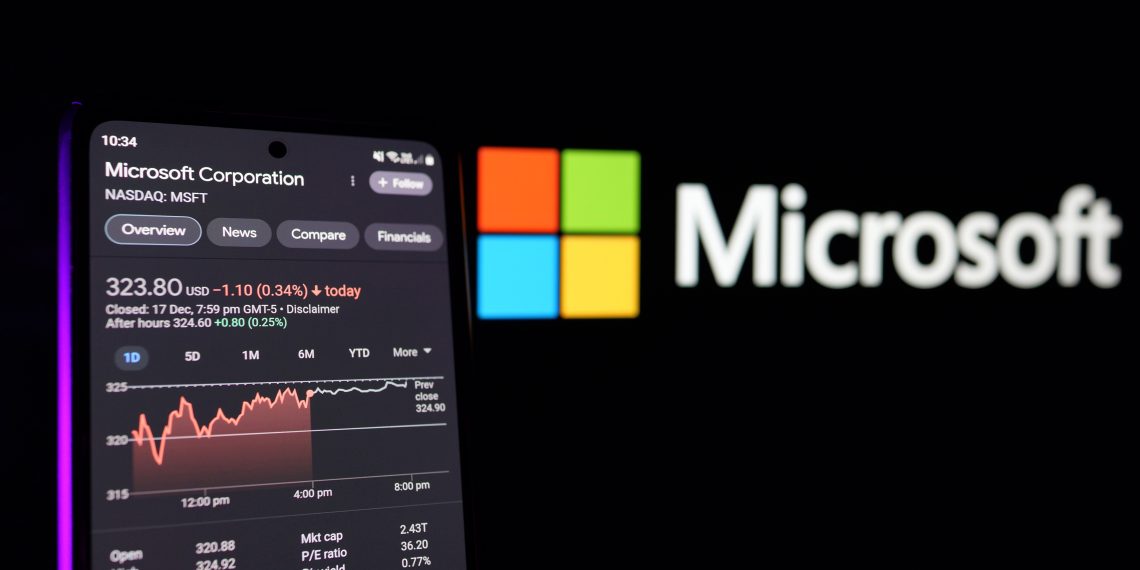Microsoft, the renowned American tech conglomerate, disclosed on Thursday its plans to infuse a staggering $2.2 billion into Malaysia over the coming four years. This financial injection is aimed at accelerating the nation’s digital overhaul and is the company’s heftiest commitment in its 32-year tenure in Malaysia.
The investment blueprint includes the erection of cutting-edge cloud and artificial intelligence (AI) frameworks within the country. Additionally, Microsoft intends to furnish AI education for an extra 200,000 Malaysian individuals, bolster its collaboration with the Malaysian government to create a national AI Center of Excellence, and enhance the nation’s cybersecurity defenses. The company also plans to nurture the growth of the local developer community.
Microsoft emphasized that these strategic moves reaffirm its dedication to establishing Malaysia as a central hub for cloud computing and emergent technologies like generative AI. It is anticipated that this will bolster the nation’s productivity, competitive edge, resilience, and overall economic expansion.
We are committed to supporting Malaysia’s AI transformation and ensure it benefits all Malaysians,
stated Satya Nadella, Chairman and CEO of Microsoft. Our investments in digital infrastructure and skilling will help Malaysian businesses, communities, and developers apply the latest technology to drive inclusive economic growth and innovation across the country,
he added.
Zafrul Abdul Aziz, Malaysia’s Minister of Investment, Trade and Industry, expressed that this initiative by Microsoft to develop essential cloud and AI infrastructure, coupled with AI skilling opportunities, will significantly boost Malaysia’s digital capabilities and elevate its status on the global tech stage.
Together with Microsoft, we look forward to creating more opportunities for our small and medium-sized enterprises (SMEs) and better-paying jobs for our people, as we ride the AI revolution to fast-track Malaysia’s digitally empowered growth journey,
he conveyed.
Andrea Della Mattea, Microsoft’s President for the ASEAN region, underscored that the strategic focus on AI not only catalyzes economic growth but also fosters inclusivity by diminishing the digital divide and ensuring equitable access to technology, enabling every Malaysian to prosper in the burgeoning digital era.
Microsoft’s announcement builds upon its previously unveiled Bersama Malaysia initiative, which was aimed at promoting inclusive economic development, and included the establishment of the company’s inaugural datacenter region in Malaysia.
The current investment is set to satisfy the increasing demand for cloud services within the country and leverage the substantial economic and productivity benefits that the latest AI technology offers. Research by Kearney projected that AI could add nearly $1 trillion to Southeast Asia’s GDP by 2030, with Malaysia potentially capturing $115 billion of this growth.
The company’s skilling commitment is poised to enrich 200,000 people in Malaysia. This includes imparting AI skills to students through the AI TEACH Malaysia program and empowering women to build cybersecurity careers via the Ready4AI&Security program. It will also provide AI fluency training to young individuals, especially those from underserved communities, and equip employees of non-profit organizations with AI and digital technology skills.
Furthermore, Microsoft will continue to collaborate with the Malaysian government to fortify the nation’s digital ecosystem through several initiatives. These include setting up a national AI Centre of Excellence and working with the National Cyber Security Agency of Malaysia to enhance cybersecurity capabilities and resilience, particularly in the public sector.
Microsoft’s support for Malaysia’s developer community will also persist, with new programs like AI Odyssey aimed at transforming 2,000 Malaysian developers into AI experts. The company acknowledges Malaysia’s significant growth as a market on GitHub, with a 28 percent year-on-year increase in developer usage in 2023.









